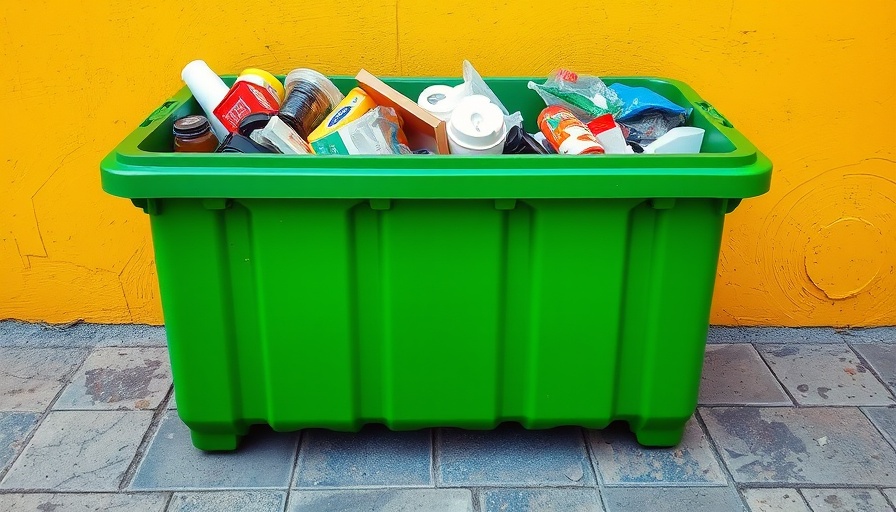
Your Recycling Matters: Why Rinsing Is Essential
How many of us think about the effort that goes into recycling? We all want to do our part for the environment, but often we overlook crucial steps that can make a big difference. According to waste experts, the simple act of rinsing your recyclables before placing them in the bin is key to ensuring they are properly processed. While it may seem minute, this small effort holds substantial weight in the world of recycling.
The Danger of Contamination: What You Need to Know
Food residue left on recyclables can wreak havoc on the recycling process. Once contaminated, items such as plastic, glass, and even paper can end up discarded as trash instead of being repurposed. Lucas Hargreaves from Recycling Lives emphasizes that even minimal residue can cause entire loads to be deemed unfit for recycling, resulting in their journey to the landfill. Not only does this affect our environment, but it also diminishes the efficacy of local recycling programs.
The Ripple Effects on Local Communities
In Dumfries, where the housing market is growing, community sustainability initiatives are pivotal to maintaining the region's appeal. If contamination rates rise, councils might refuse to collect recyclables, putting more pressure on landfills and affecting local waste management systems. It's essential for homebuyers and sellers to recognize that maintaining clean recycling is part of contributing positively to their community. If every household takes the extra step to rinse their recycling, the ripple effect can lead to cleaner neighborhoods, reduced pest issues, and better waste management overall.
Guidelines for Effective Rinsing: A Quick How-To
Rinsing your recyclables doesn’t have to be a chore. Here’s a quick guide to make the process more efficient:
- Use a utensil to scrape off any leftover food.
- Rinse under water to remove any drink residues.
- Let them dry before placing them in the recycling bin.
If you're dealing with cardboard or paper covered in grease, cutting away the contaminated parts and recycling the cleaner portions can also be effective.
Understanding Council Regulations: What to Be Aware Of
Local regulations about recycling can differ slightly, but the overarching principle is the same: clean recyclables equal successful recycling. Many councils, including those in Dumfries, will not empty a recycling bin that contains heavily contaminated materials. Being aware of your local guidelines can save you the hassle of dealing with an overflowing recycling bin and the potential embarrassment or fines that might accompany it.
Frequently Asked Questions About Recycling
Here are some common questions homeowners often have regarding recycling:
-
Do I need to scrub items clean?
No, a simple rinse will suffice. -
What if I can't rinse some items?
For cardboard or paper with heavy contamination, cut away the dirty sections and recycle the clean parts. -
What happens if my bin is contaminated?
Contaminated recycling may be deemed uncollectable and sent to a landfill.
Educating yourself and others about these simple yet effective practices can lead to significant advancements in community sustainability.
Take Action for a Greener Future
So, the next time you find yourself tossing recyclables in the bin, take a moment to rinse them. It's a small step for you but a giant leap for our planet. Encouraging friends, family, and neighbors to adopt these practices not only fosters community spirit but also enhances our collective impact on the environment. Let's work together to preserve the beauty of Dumfries and support sustainable practices in our homes and communities. Together, we can make a real difference in the world of recycling.
 Add Row
Add Row  Add
Add 





Write A Comment